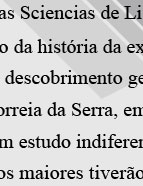

................................
Following the proposed trajectory, traditional political history may be highlighted as the privileged realm of historical writing; in other words, political history was history, and history featured as the central discipline in the study of society. Historians such as Leopold von Ranke (1795–1886), Fustel de Coulanges (1830–1889), and William Stubbs (1825–1901) emerged from this period. The first was considered one of the founding fathers of "Scientific History." Attracted by the allure of primary sources, Ranke valued the role of narrative and human agency in history, unlike the philosophy of history practiced by Friedrich Hegel (1770–1831). The second, although politically distinguished as a conservative and opponent of universal suffrage and the democratisation of political regimes, also advocated a "modern" approach to historical writing. In his opinion, so-called "scientific" history depended on a distancing from present experiences, which was understandable given that the author belonged to a generation still deeply marked by the memory of the terror of the French Revolution and the actions of the Convention during the First Republic. From his perspective, history needed to focus on observation and finding a method based on reading and accumulating documentation. This view marked a substantial change from the historiographical approaches derived from Romanticism, in the vein proposed by Jules Michelet (1798–1874), and aimed to prevent the past from being appropriated by the present. History was based on a "regime of evidence." Similarly, the empiricism advocated by William Stubbs can also be considered.
In an earlier period of intellectual maturation, in particular in the first half of the 18th century, the history written in Portugal was closer to ancient chronicle writing, with no other major concerns than to record the deeds of great institutions or famous personalities, religious congregations, or the University of Coimbra, for example, covering notable events from various reigns. Authors such as Francisco Leitão Ferreira (1667–1735), an active member of the Royal Academy of History, Friar Manuel dos Santos (1672–1748), and José Soares da Silva (1672–1739), who was also a founder of the Royal Academy of History, fall within this scope. Other important figures of this era include António Caetano de Sousa (1674–1759), who worked on the genealogies of the Royal House, and Friar Manuel da Rocha (1676–1744), a medievalist of some merit.
